
Depression
Fighting Depression Stigma: The Ends Justify the Memes
We need memes to win over hearts and minds in our conversation about depression.
Posted April 6, 2014 Reviewed by Abigail Fagan
Some 38 million American adults struggle with depression. The World Health Organization projects that by 2030, the amount of disability and life lost due to depression will be greater than that from war, accidents, cancer, stroke, or any other health condition besides heart disease. This is one of the most pressing social problems facing the world, and yet our social dialogue about depression remains profoundly anemic.
The human costs of our lack of dialogue are high. Because we don't know how to talk about depression, those who suffer from its symptoms still struggle largely in isolation. In most quarters, depression remains socially toxic, a topic to be concealed. Talking about depression doesn't help our love life or win us friends or promotions. People who are struggling with depression often delay getting help because of their desire to conceal the problem. When we do speak of depression, it is often in the most hushed of tones.
Bringing the topic of depression out of the dark will take a multi-pronged effort. Elsewhere, I've written about one prong — the need for a unifying symbol to galvanize public dialogue — which I've called depression's bumper sticker problem.
Another prong is what I call depression's meme problem. Depression is profoundly uncool. So uncool that 99.9 percent of dialogue about depression is stripped all references to anything cool or current. Many anti-stigma campaigns are well-meaning but they are often preachy, and they're also often preaching to the converted. Depressed people are normal people who don't want to be talked down to. They, too, have a sense of humor, an edge.
Solving the meme problem is about reconnecting our dialogue about depression to popular culture, with all of its goofy edginess. Popular culture, superficial as it may sometimes be, is what drives talk around the water cooler.
Indeed, if one thing is clear it's that the most important public health problem facing our country needs to be discussed around the water cooler. We need to rouse both those who are affected by depression and those who have not yet been affected. Memes are a viral delivery system to get ideas into people's heads, to get people talking, and ultimately to get people to think differently about depression. We need to mobilize our whole society — hearts and minds — to begin to get the depression epidemic under control. The ends justify the memes.
In the spirit of brainstorming, I humbly submit some of my depression memes for your consideration.
Meme #1: Dialogue about medications drowns out other intelligent conversation.

Meme #2: Anti-stigma campaigns should not be afraid to draw from popular iconography.
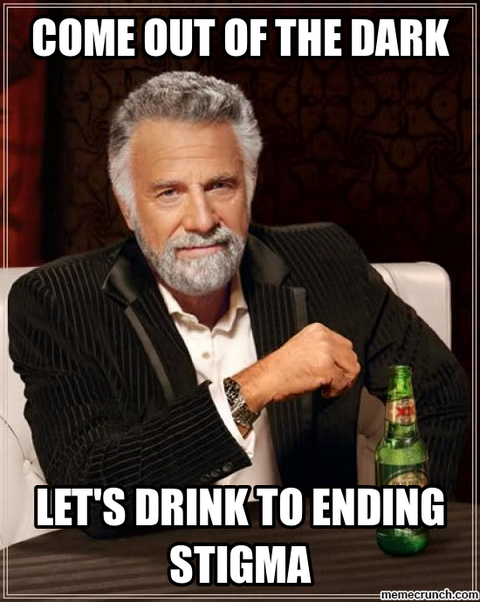
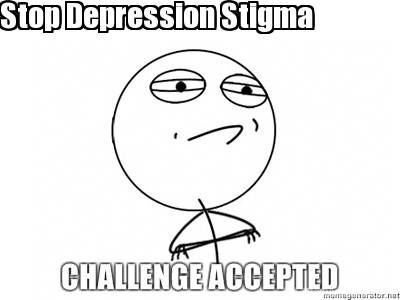
Meme #3: We need memes that do justice to the strength of those who conquered depression.
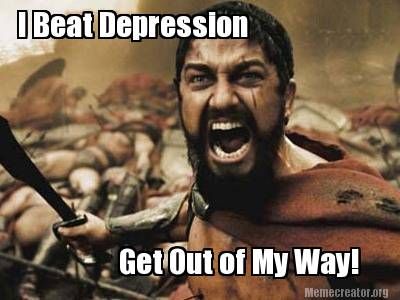

Meme #4: We need memes to help people resist accepted thinking.
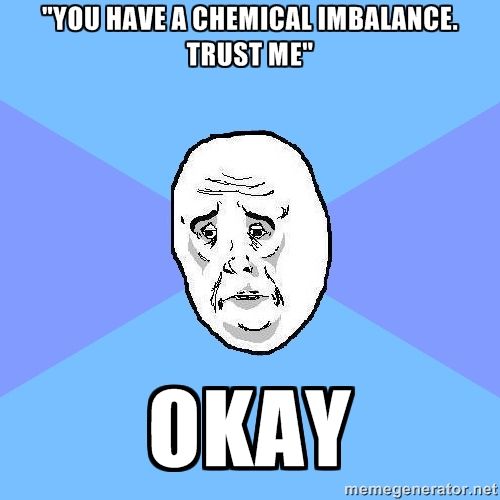
Meme #5: We need memes that build the solidarity of people who have struggled with depression.
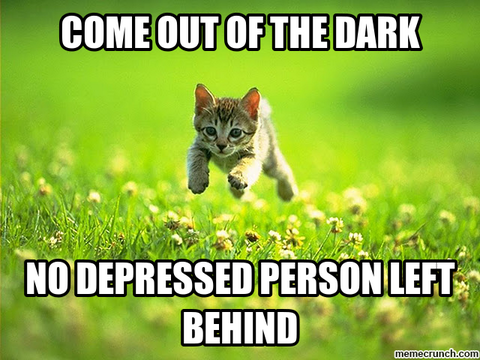
Memes are restless, inventive, provocative, and attention-grabbing. Ironically, a profusion of silly, funny, and angry memes is more likely to rouse serious conversation about depression than waves of sober sloganeering.
So... calling all memes. Feel free to send me your ideas. Better yet, post your memes on your favored social media using #DepressionMeme.
Jonathan Rottenberg is the author of The Depths: The Evolutionary Origins of the Depression Epidemic.

